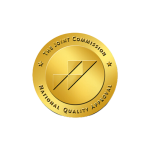What You'll Learn:
- What is Angel Dust?
- Addiction and Impact
- Rehabilitation and Recovery
In the landscape of substance abuse and addiction, Angel Dust stands out as a particularly notorious drug. Despite its seemingly innocent street name, it's a powerful and dangerous substance.
What is Angel Dust?
"Angel Dust" is a street name for Phencyclidine, commonly known as PCP. Originally developed in the 1950s as an intravenous anesthetic, PCP was soon discontinued for medical use due to its severe side effects, including hallucinations and delirium. Despite this, it gained popularity as a recreational drug in the 1960s and 1970s. Phencyclidine (PCP), a dissociative drug initially developed as an anesthetic. Known for inducing hallucinations and a sense of detachment, Angel Dust affects the brain in ways that are dangerous and often unpredictable, making it a substance of high concern in terms of abuse and addiction. As a recreational drug, PCP is known for its potent mind-altering effects. It is classified as a dissociative drug, meaning it can create a sense of detachment from one's environment and self. This can lead to a distorted perception of reality, often characterized by hallucinations, feelings of detachment, and altered sensory experiences.
Angel Dust Addiction and Its Impact
The side effects of PCP can vary greatly depending on the amount taken, the method of use, and the individual's physiology and mental state. Due to its unpredictable effects, using PCP can be particularly dangerous. It has been associated with violent behavior and self-harm, largely because it can induce a feeling of invincibility and emotional detachment. The risks are heightened when combined with other substances, including alcohol. Addiction and dependence are also concerns with PCP use. Regular use can lead to psychological dependence, craving, and compulsive PCP-seeking behavior. Withdrawal symptoms can include depression, anxiety, and irritability. Given its high potential for abuse and significant health risks, PCP is classified as a Schedule II controlled substance in the United States, indicating a high potential for abuse with some accepted medical use under severe restrictions.
The addictive nature of Angel Dust lies in its psychological effects. Users often develop a dependency on the feelings of disconnection and euphoria it provides. This dependency can disrupt personal and professional life, leading to significant health, social, and legal problems.
5 Ways to Address Angel Dust Addiction
Addressing Angel Dust (PCP) addiction is a complex process that requires a multifaceted approach. Due to the severe psychological and physical effects of the drug, treatment often involves both medical and psychological interventions.
1. Acknowledgment and Acceptance
The first step in addressing any addiction is acknowledging the problem and accepting the need for help. This can be challenging, especially given the nature of addiction and the denial it often entails.
2. Professional Detoxification
Detoxification is usually the initial stage of treatment. Because withdrawal from PCP can be uncomfortable and potentially dangerous, it’s often conducted in a medically supervised setting. This ensures the safety and comfort of the individual during the detox process.
3. Inpatient or Outpatient Treatment Programs
Depending on the severity of the addiction, either inpatient (residential) or outpatient treatment programs may be recommended. Inpatient programs offer a structured environment that can be beneficial for those with severe addiction or co-occurring disorders.
Outpatient programs allow individuals to maintain certain aspects of their daily life while receiving treatment.
4. Behavioral Therapy and Counseling
Various forms of therapy are central to treating PCP addiction. Cognitive-behavioral therapy (CBT) is commonly used to help individuals recognize and change harmful thought patterns and behaviors.
Group therapy and support groups provide a platform for shared experiences and peer support, which can be crucial for recovery.
5. Treatment of Co-occurring Disorders
It’s common for substance abuse disorders to co-occur with other mental health issues like depression or anxiety. Addressing these underlying conditions is essential for effective treatment and long-term recovery.
5 More Ways
6. Family Therapy and Support Systems
Involving family members in the treatment process can be beneficial. Family therapy helps repair relationships and builds a supportive home environment.
Establishing a strong support system, including friends, family, and support groups, is crucial for sustained recovery.
7. Relapse Prevention
Treatment programs often include relapse prevention planning. This involves identifying triggers, developing coping strategies, and creating a plan to manage potential relapse situations.
8. Aftercare and Ongoing Support
Recovery from addiction is an ongoing process. Aftercare programs and continued therapy sessions can provide the necessary support to maintain sobriety.
Participation in support groups like Narcotics Anonymous (NA) can offer ongoing community support and accountability.
9. Lifestyle Changes and Holistic Approaches
Adopting a healthy lifestyle, including regular exercise, a balanced diet, and stress management techniques, can significantly aid in recovery.
Holistic treatments like meditation, yoga, and art therapy can complement traditional treatments and aid in overall well-being.
10. Education and Awareness
Educating the individual about addiction and its effects on the body and mind can empower them to make informed decisions about their health and recovery.
Recovering from Angel Dust addiction is a challenging journey that requires strength, support, and professional guidance. It’s a process of healing not just the body, but also the mind and spirit.
The Legal Status of Angel Dust
Angel Dust is classified as a Schedule II controlled substance, indicating a high potential for abuse and severe psychological or physical dependence. Possession, distribution, or manufacture of PCP without a license can lead to legal consequences, including fines and imprisonment. The severity of these consequences often depends on the amount of the substance and the nature of the offense (e.g., possession vs. intent to distribute).
If you or someone you know is struggling with Angel Dust addiction, American Recovery is here to help. Our experienced team provides comprehensive treatment and support to guide you through recovery. Contact us at 866-484-2502 or visit our website to take the first step towards a healthier, drug-free life. At American Recovery, we are committed to helping you overcome addiction and reclaim control over your life.


